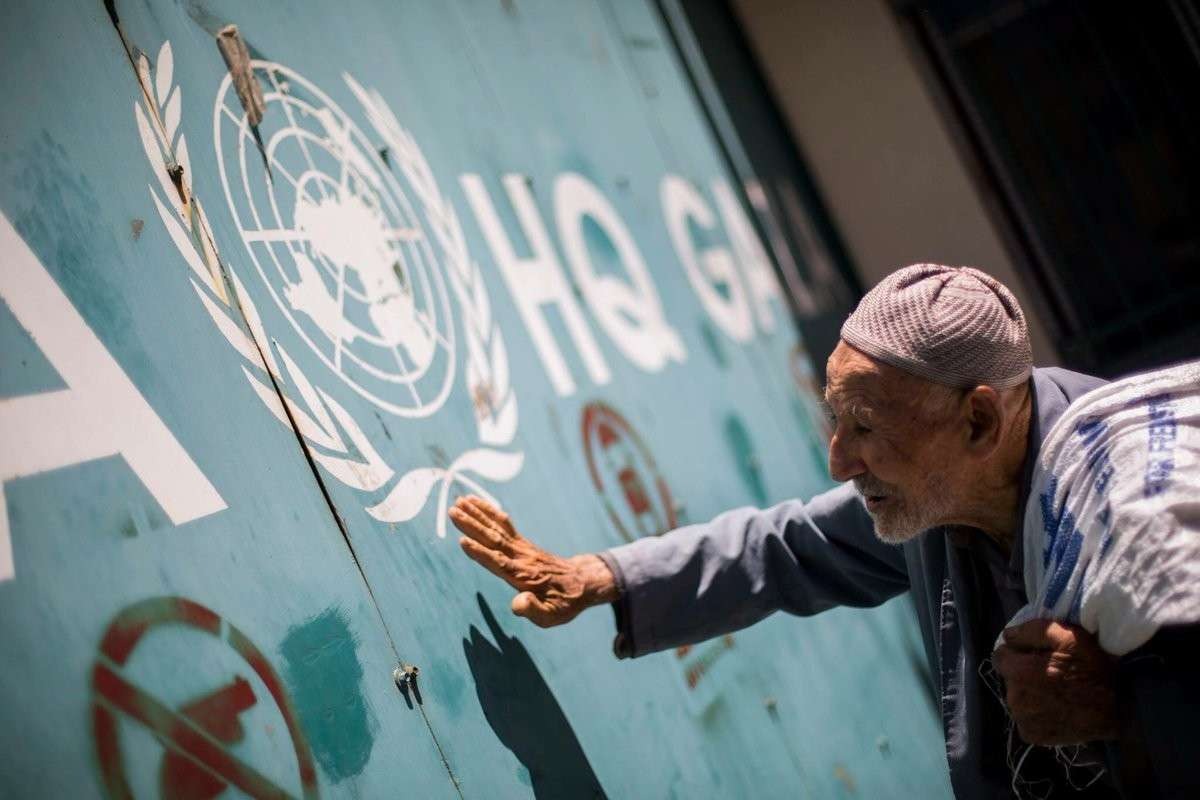Department of Research, Strategic Studies and International Relations 31-10-2024

Israel’s recent decision to outlaw the United Nations Relief and Works Agency (UNRWA) has drawn significant criticism from experts, who see it as part of a larger strategy to suppress Palestinian refugee rights and press them out of the occupied territories. Analysts from the International Crisis Group and other organizations argue that this legislation, set to take effect in three months, will devastate an already dire situation in Gaza, the West Bank, and East Jerusalem.
According to Tahani Mustafa, an expert on Israel and Palestine with the International Crisis Group, Israel’s move seeks to dismantle any remaining infrastructure of aid for Palestinian refugees. “This isn’t just about cutting off services; it’s about forcing Palestinians off their land entirely,” Mustafa explained. UNRWA has been a critical source of aid, helping Palestinians survive under challenging conditions, especially in Gaza. The International Court of Justice has cited that civilians in Gaza face existential threats due to these policies, a situation intensified by recent escalations between Hamas and Israeli forces.
Since Hamas’s October 2023 incursion, where over a thousand Israelis were killed and numerous others captured, Gaza’s population has faced extreme consequences. In response, Israeli military operations have displaced almost the entire 2.3 million population of Gaza, causing devastating casualties and destruction. The blockade imposed by Israel since 2007 has severely restricted Gazans’ access to basic resources, leading many international groups to describe Gaza as an “open-air prison.”
Israel’s termination of UNRWA services may serve to depopulate Gaza, argues Khaled Elgindy, a senior fellow at the Middle East Institute. He describes this prohibition as a tactic to “make life so unbearable in Gaza that residents leave,” further pushing Palestinians off their ancestral lands.
Erasing the Legacy of the Nakba
UNRWA was established in 1948, following the forced displacement of over 750,000 Palestinians during the creation of the Israeli state, an event Palestinians call the Nakba, or “catastrophe.” The agency was intended to support these displaced people until they could return, as stipulated in United Nations Resolution 194. According to Elgindy, Israel’s current tactics reflect an aim to erase this legacy. UNRWA’s existence is a reminder of Palestinian displacement, and attempts to dismantle it align with efforts to diminish acknowledgment of the Nakba in international discourse. He added, “UNRWA keeps the Nakba visible to the world, and that’s precisely what Israel is attempting to remove.”
Efforts to undercut UNRWA intensified in 2018 when then-U.S. President Donald Trump suspended American support for the agency, resulting in a critical funding gap. Palestinians saw this decision as an attack on their right to return to their homeland, a principle UNRWA has embodied for decades.
An Irreplaceable Lifeline
For many Palestinians, particularly in Gaza and the West Bank, UNRWA represents essential access to food, housing, healthcare, education, and employment. Zaid Amali, a UNRWA cardholder and activist from the West Bank, expressed that the agency’s services are irreplaceable. No other organization can match UNRWA’s reach and impact, he said, describing how its closure will exacerbate hardship for millions of Palestinians who depend on these services amid Israeli military actions, such as frequent raids on refugee camps in the West Bank.
Legal expert Diana Buttu, former advisor to the Palestine Liberation Organization (PLO), agrees. She explains that the Palestinian Authority (PA), created through the 1993 Oslo Accords to govern parts of the West Bank and Gaza, lacks the resources to replace UNRWA’s extensive mandate. The PA’s jurisdiction has been limited to the West Bank since it lost control of Gaza in 2007 to Hamas. If Israel fully eliminates UNRWA, Palestinians in the West Bank and Gaza may find themselves in an impossible situation without the crucial infrastructure and support the agency provides. Buttu added that the PA simply cannot match the scale of assistance UNRWA provides.
Threats to the Palestinian Cause
The stakes are high, activists warn, not only for Palestinians’ material well-being but for the broader Palestinian cause. The erosion of UNRWA, which symbolizes international acknowledgment of Palestinian rights, could weaken Palestine’s position in global discourse. Amali pointed out that Israel has taken numerous aggressive actions, including barring the UN Secretary-General from entering Israel and publicly defying the United Nations Charter. Most recently, Israel’s ambassador tore the UN Charter in front of the General Assembly in response to a non-binding vote in May 2024 that essentially recognized Palestine as a state.
Mustafa from the International Crisis Group suggests that the PA could soon face increased pressure as Israel continues to disrupt Palestinian representation in global platforms. She noted that Israel currently withholds $188 million in tax revenue from the PA, which Israel is mandated to collect on the PA’s behalf under the Oslo Accords.
“Israel’s moves aren’t random but strategic,” Mustafa said. “The end goal is clear: make life for Palestinians so unbearable that they either flee or capitulate.”
This pattern underscores a larger trend, say observers: a systematic push to minimize Palestinian presence and erase historical grievances, thereby shifting the balance of power decisively in favor of Israel.

